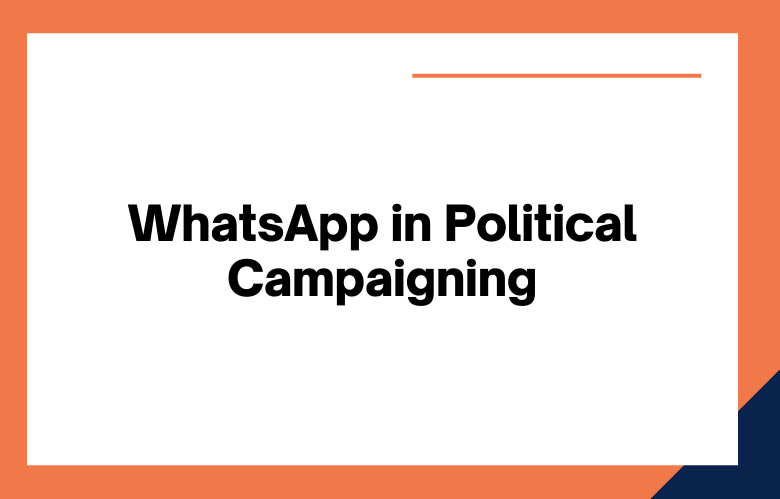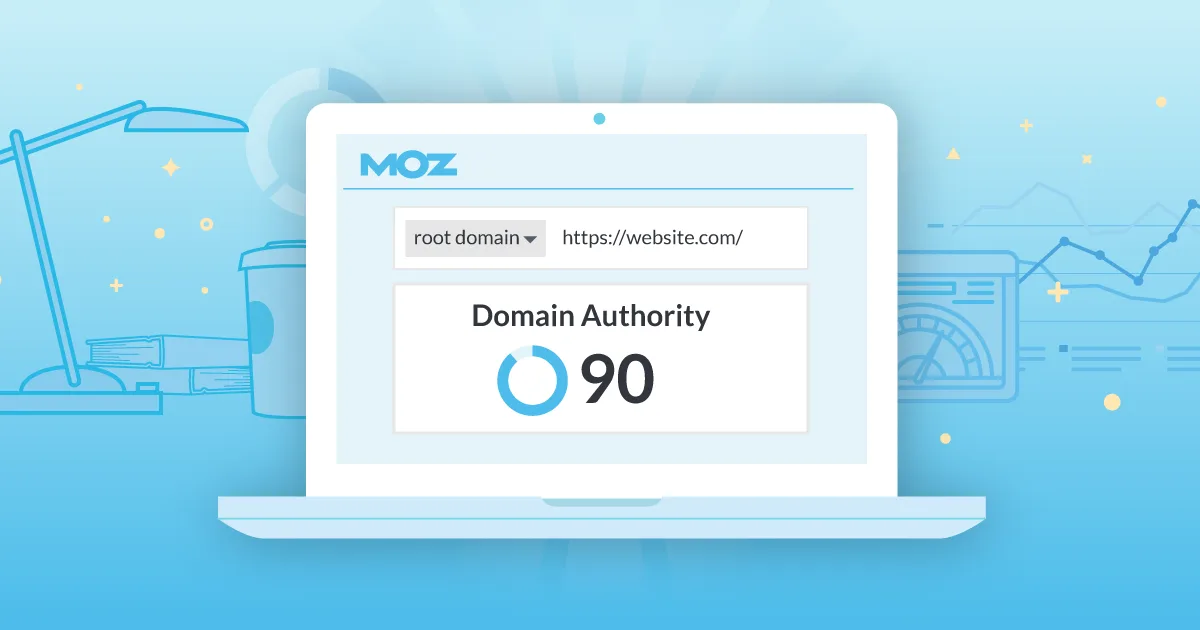In today’s digital age, WhatsApp has become a powerful tool for communication, and it’s no surprise that political messages find their way into this platform. Whether you’re a concerned citizen, an activist, or just someone who wants to stay informed and engaged in political discussions, this guide will walk you through the dos and don’ts of sending political messages on WhatsApp. In this article, we’ll explore the best practices for engaging in political conversations using this widely popular messaging app, all while optimizing your use of keywords for better reach. So, let’s dive in!
Understanding the Power of WhatsApp
WhatsApp is more than just a messaging app; it’s a community of people with shared interests and concerns. It offers a unique space for political conversations that can be both insightful and impactful.
WhatsApp’s global reach is unmatched. It connects individuals from various corners of the world, providing a platform for political discourse that transcends borders. This unprecedented connectivity makes it a prime choice for sending political messages. Whether you want to support a political cause, raise awareness, or just share your opinions, WhatsApp is a valuable tool.
Setting the Stage: Your WhatsApp Profile
Your WhatsApp profile is your digital identity, and it’s the first thing people see when you message them. It’s crucial to ensure that it accurately represents your political stance and personality.
A well-crafted profile can instantly convey your political affiliations and beliefs. Your profile picture, status, and even the choice of words in your status message can help you connect with like-minded individuals. Here’s how to set the stage effectively:
Profile Picture: Choose a profile picture that reflects your political leanings, or use a relevant symbol or logo. If you’re a supporter of a particular political party, consider using its logo or flag.
Status Message: Your status message is like a mini-bio. Use it to express your political views or share inspirational political quotes. Keep it professional but also inviting for meaningful discussions.
Display Name: While your display name can be your actual name, consider adding a political identifier. For example, “John – Environmental Activist” or “Sarah – Social Justice Advocate.”
By curating your profile to align with your political interests, you’ll naturally attract like-minded people who are more likely to engage with your political messages.
Building Your Contacts List
To send political messages on WhatsApp, you need an audience. Building your contact list strategically can help you reach more people who share your interests and concerns.
Start by connecting with friends and acquaintances who already share your political beliefs. This is an excellent way to establish your presence on the platform. But don’t stop there; broaden your horizons by following these tips:
Join Political Groups: Look for political groups that align with your interests. Use WhatsApp’s “Groups” section to search for relevant keywords and topics. Once you join, engage actively in discussions to become a valued member.
Participate in Political Events: Many political events and protests have dedicated WhatsApp groups. Joining these can connect you with passionate activists and individuals who want to make a difference.
Engage with Local Politicians: Local politicians often have WhatsApp groups for their constituents. Joining these groups not only keeps you informed about local issues but also allows you to network with politically active individuals.
Network with Activists: Reach out to activists, community organizers, and people involved in political causes. Their networks can be a goldmine for connecting with like-minded individuals.
Building your contacts list is an ongoing process. Keep expanding your network and engaging in conversations with your contacts to build trust and credibility.
Crafting Effective Political Messages
Creating messages that resonate with your audience is an art. To send political messages that are impactful, you need to craft them thoughtfully.
Conciseness: In the world of WhatsApp, brevity is key. Keep your messages concise and to the point. People often skim through long messages, so make every word count.
Well-Researched Content: Back your political messages with facts and well-researched information. Providing evidence for your claims adds credibility to your messages.
Emotional Appeal: While facts are important, emotions often drive action. Use emotional language to connect with your audience on a personal level. Share stories, anecdotes, or personal experiences related to your political message.
Call to Action: Encourage your audience to take action. Whether it’s signing a petition, attending an event, or simply sharing your message, a clear call to action can drive engagement.
Crafting effective political messages is an ongoing process. Experiment with different approaches and analyze the response to refine your messaging strategy.
The Art of Group Chats
Group chats are the hubs of political discourse on WhatsApp. They allow you to reach a broader audience and engage in meaningful discussions. However, to be successful in group chats, you must understand the dynamics.
Join or Create Groups: You can either join existing political groups or create your own. Joining established groups can help you tap into existing audiences. Creating your group allows you to moderate and control the discussion.
Be a Valued Contributor: In group chats, it’s essential to be a contributor, not a spammer. Share valuable information, participate in discussions, and respect the group’s rules and guidelines.
Avoid Overload: Group chats can get noisy, and excessive messaging can lead to overwhelm. Ensure that your messages are relevant to the ongoing discussion, and avoid sending too many messages in a short span.
Moderation and Etiquette: If you create a group, establish clear rules and guidelines for communication. Encourage civil discourse and respect differing opinions.
Group chats are an excellent way to stay updated, share information, and mobilize support for political causes. Be an active and responsible participant in these groups.
Dealing with Controversy and Disagreements
Political discussions often lead to disagreements and controversy. It’s essential to navigate these situations with grace and respect.
Respect Diverse Views: Respect that not everyone will share your political beliefs. Engage with an open mind and a willingness to understand differing perspectives.
Maintain a Civil Tone: Avoid personal attacks, insults, or aggressive arguments. Keep the discussion civil and focused on the issues rather than attacking individuals.
Focus on Constructive Discussions: Instead of arguing, aim for constructive discussions. Find common ground, build on shared goals, and work towards solutions.
Agree to Disagree: Sometimes, it’s best to agree to disagree. Not all discussions will lead to a consensus, and that’s okay. The goal is to exchange ideas and perspectives.
Dealing with controversy and disagreements in a respectful manner can help maintain the integrity of your political messages and your reputation as a communicator.
Sharing Reliable Sources
In the era of fake news and misinformation, it’s crucial to back your political messages with reliable sources. Sharing credible information not only adds legitimacy to your WhatsApp blast messages but also helps your audience make informed decisions.
Cross-Check Information: Before sharing political news or information, cross-check it with multiple reliable sources. Verify the accuracy of the information.
Use Reputable News Outlets: Share articles and reports from reputable news outlets, such as established newspapers, magazines, and well-known websites.
Avoid Clickbait and Sensationalism: Be wary of sensationalized headlines and clickbait. Ensure that the sources you share provide objective and balanced information.
Fact-Check Tools: Use fact-checking tools and websites to verify the accuracy of information. There are several fact-checking organizations dedicated to keeping information accurate.
By sharing information from reliable sources, you contribute to a more informed and educated political discourse on WhatsApp.
Privacy Matters: Keeping Your Data Secure
Privacy is a paramount concern when engaging in political discussions on WhatsApp. Here are some steps to ensure your data is secure:
Review Privacy Settings: WhatsApp provides various privacy settings that allow you to control who can see your information. Review and adjust these settings according to your preferences.
Share Contact Information Wisely: Be cautious about sharing your contact information. Only share your number with trusted individuals to prevent unsolicited messages.
End-to-End Encryption: WhatsApp uses end-to-end encryption to protect your messages from being intercepted. However, be aware that the metadata (who you communicate with and when) is still visible.
Beware of Phishing: Be cautious of phishing attempts. Verify the identity of individuals before sharing sensitive information or clicking on links.
Regularly Update the App: Keep your WhatsApp app updated to benefit from the latest security features and patches.
Privacy is essential for maintaining the integrity of your political messages and ensuring your personal data is secure.
Avoiding Spam and Overload
Sending too many messages can overwhelm your contacts and lead to disengagement. Here’s how to avoid spamming your audience:
Quality Over Quantity: Focus on the quality of your messages rather than the quantity. Sending fewer, more impactful messages is more effective than flooding inboxes.
Timing Matters: Consider the timing of your messages. Avoid sending messages during late hours or at times when people are unlikely to engage.
Relevance Is Key: Ensure that your messages are relevant to your audience. Sending messages that align with their interests increases engagement.
Ask for Feedback: Encourage feedback from your contacts. Ask them if they find your messages helpful and what improvements they’d like to see.
Create a Content Calendar: Plan your messages in advance and create a content calendar. This helps you maintain consistency without overwhelming your contacts.
By avoiding spam and overload, you can keep your audience engaged and ensure that your political messages have a more significant impact.
Monitoring and Measuring Impact
To send effective political messages on WhatsApp, it’s essential to measure the impact of your communication efforts.
WhatsApp provides several features and metrics that can help you understand how your messages are performing:
Read Receipts: WhatsApp shows when your messages have been delivered and read. This can give you insights into which messages are more engaging.
Message Forwarding: You can see how many times your messages have been forwarded. A high forwarding rate indicates that your message has resonated with your audience.
Group Insights: If you’re a group admin, WhatsApp provides insights into the activity within your group, including the most active members and popular content.
Message Response: Observe how your audience responds to your calls to action. If you’re asking them to take specific steps, measure the response rate.
Feedback and Comments: Pay attention to the feedback and comments you receive in response to your messages. Use this information to refine your messaging strategy.
By monitoring and measuring the impact of your political messages, you can adapt your approach for better engagement and effectiveness.
FAQs
1. How can I join political groups on WhatsApp?
To join political groups, search for relevant keywords in the “Groups” section or ask your existing contacts to add you. Engage actively in discussions to be a valued member.
2. What’s the best way to handle disagreements in political discussions?
Respect differing opinions, maintain a civil tone, and focus on constructive discussions. Avoid personal attacks and aggressive arguments.
3. Are there any legal concerns when sending political messages on WhatsApp?
Ensure you comply with your country’s laws and WhatsApp’s terms of service. Do not engage in hate speech or any form of harassment.
4. How can I verify the credibility of political news or information shared on WhatsApp?
Cross-check information with multiple reliable sources before accepting it as factual. Be cautious of misinformation and disinformation.
5. How can I report spam or unwanted political messages on WhatsApp?
Use the reporting feature within WhatsApp to report spam or unwanted messages. The platform takes user reports seriously to maintain a positive environment.
By following these tips and guidelines, you can effectively send political messages on WhatsApp while fostering healthy and productive discussions within your community. Remember, your voice matters, and WhatsApp can be a powerful tool for political engagement when used responsibly.
Conclusion: Making Your Voice Heard
WhatsApp is a powerful platform to send political messages to a broad audience. By following the guidelines in this article, you can effectively engage in political discussions while maintaining a respectful and responsible presence on the platform.
Now, let’s address some common questions about sending political messages on WhatsApp.
Also Read: Ecommerce Website Development: Key Steps for Success



